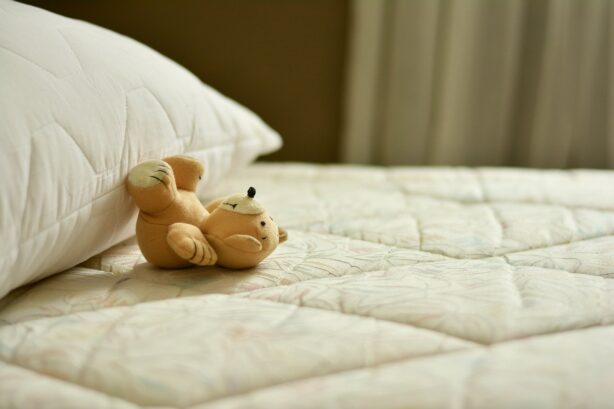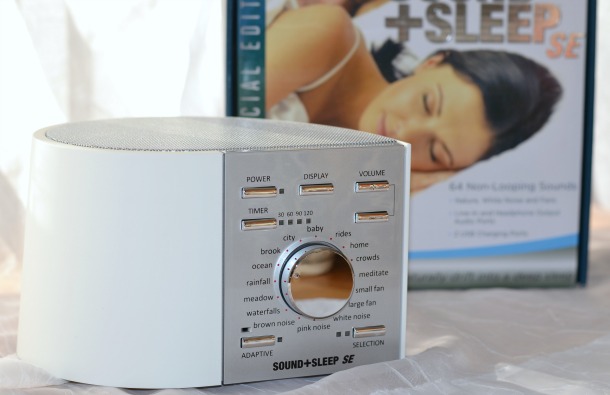Even though almost all of us understand the importance of a good night’s sleep, it’s something that many people struggle with.

Luckily, there are things that you can do to improve sleep quality both for yourself and everyone else in your family.
If you’ve been struggling to get the sleep you need, try these 8 tips to help you fall asleep faster and stay asleep longer:
Get the Right Mattress
One of the absolute most important elements of a good night’s sleep is having the right mattress.
If you have an old, lumpy mattress, it’s time for an upgrade. You need a comfortable and supportive bed to get a restful night’s sleep.
The experts at Sleepline have found that most people prefer a medium-firm mattress for the support and comfort it offers.
Those with back pain, however, may want to opt for a firm mattress to help support the spine.
If you’re not sure what type of mattress you prefer, visit a local mattress store and test out a few to see which one seems most comfortable.
Alternatively, look for companies that offer a sleep guarantee, so that you can return the mattress if it isn’t the right support level for you.
And don’t forget about your sheets and pillows! Pillows can wear out and lose their supportiveness over time, and high-quality bedding helps improve comfort for a better sleep experience.
Keep the Bedroom Cool
The temperature of your bedroom can help a lot when you want to improve sleep quality.
Experts recommend keeping the room cool, around 65 degrees Fahrenheit or 18 degrees Celsius, to help you sleep more soundly.
When your body temperature drops, it signals your brain that it’s time to sleep. So, if you keep your bedroom cool, you’ll likely fall asleep quickly and stay asleep longer.
To help keep the bedroom cool, consider adding an air conditioner or fan to the room.
And if you have central air, look into a programmable thermostat so that you can set it to automatically lower the temperature each night.

Use a White Noise Machine
One of the most beneficial ways to improve sleep quality for many people is white noise.
The low, consistent sound of white noise is both relaxing on its own, and helps block out other sounds that might keep you awake.
There are many different types of white noise machines available on the market. You can find one that plays sounds like rain, waves, or even crickets chirping. Or, you can find one that plays a continuous, low tone.
Experiment with different sounds to see what sounds tend to work best for you. And keep in mind that you don’t necessarily need to buy a white noise machine to reap the benefits of white noise.
Look into white noise apps on your smartphone for an easy alternative to a physical white noise machine. You can even use the static from an old-fashioned radio set at low volume.
Bring Positive Energy Into the Bedroom
The furniture, lighting, colors, and more in your bedroom are all things that contribute to the overall mood of the space.
Your room is where you go after a heavy day, or when you want to clear your head, so you might as well create a place that has a connection with your personality.
Choose soothing accessories, color the walls, buy beautiful plants, or use crystal souvenirs to have something spiritual in your room.
Crystals are very popular nowadays with rising knowledge about their meaning and power. You can choose them based on your zodiac sign, based on their healing power, or just based on the way they look if you want to start a collection.
For example, the pale green soft stone Green Calcite healing properties include cleaning the energy of a space and purifying your surroundings.
Invest In Noise Cancelling Headphones
If you’re easily disturbed when you’re sleeping, a pair of noise cancelling headphones may be the solution to your interrupted sleep.
Look for a pair of headphones that are specially designed to be worn while sleeping, since prioritizing comfort is a must.
You can even find specially-designed sleep headphones and earbuds that play white noise while blocking out other sounds!
If you’re on a budget or want an easier solution, don’t overlook good old-fashioned earplugs, either. Blocking out the background noise may be just what you need for a good night’s sleep.
Create a Bedtime Routine
One of the most effective ways to improve sleep quality is to train your body for sleeping with a bedtime routine.
To create your routine, think about the things that help you personally relax and unwind.
This could include taking a bath, reading a book, listening to music, or spending some time doing deep breathing or meditation.
The key is to do the same thing at the same time every night, so your body knows when it’s time to sleep. This will help you relax and fall asleep more easily.
You can even light some candles or use an essential oil diffuser to create a relaxing atmosphere. When you wind down before bed, you’re creating the ideal environment for sleeping.

Get More Exercise
Exercise is important to overall health, but it’s also a key element of good sleep since it helps regulate your body’s natural sleep-wake cycle.
Aim to get at least 30 minutes of exercise every day. But keep in mind that exercising right before bed can actually disrupt sleep instead of improving it.
Instead, plan to get your daily exercise at some point before your last meal of the day, so your body has a chance to relax later.
Limit Screen Time Before Bed
One of the biggest disrupters to a good night’s sleep is spending time on a screen just before bed.
Part of this is because smartphones, tablets, and other electronic devices produce blue light, a type of light that limits the production of melatonin, the hormone that makes you feel sleepy.
In addition, the games, videos, and social media stimulation from using devices can keep the brain busy on their own, preventing you from properly unwinding.
Most experts recommend turning off all devices at least one hour before bedtime. Starting your bedtime routine at this time can be a great way to get yourself ready for bed.
If you absolutely must be in front of a screen before bed, make sure to keep the brightness low, and consider wearing blue light-blocking glasses as well.
Don’t Go To Bed Hungry or Full
If you’ve ever tried to sleep right after a big meal, you may already be familiar with the indigestion, heartburn, and general stomach discomfort of going to bed when overly full.
On the other hand, going to bed hungry may keep you tossing and turning as well, since your hunger can stop you from properly settling down to sleep.
Ideally, plan on having your last meal or snack about three hours before bed. This will give your body time to properly digest the food, without leaving you too hungry to drift off.

By following these tips, you can increase deep sleep and ensure that the whole family is well rested, something that’s essential to overall health and happiness.
So, try out these tips and see how they work for you! With a bit of planning and some simple changes in your daily routine, getting the rest you need can be easier than you think.
